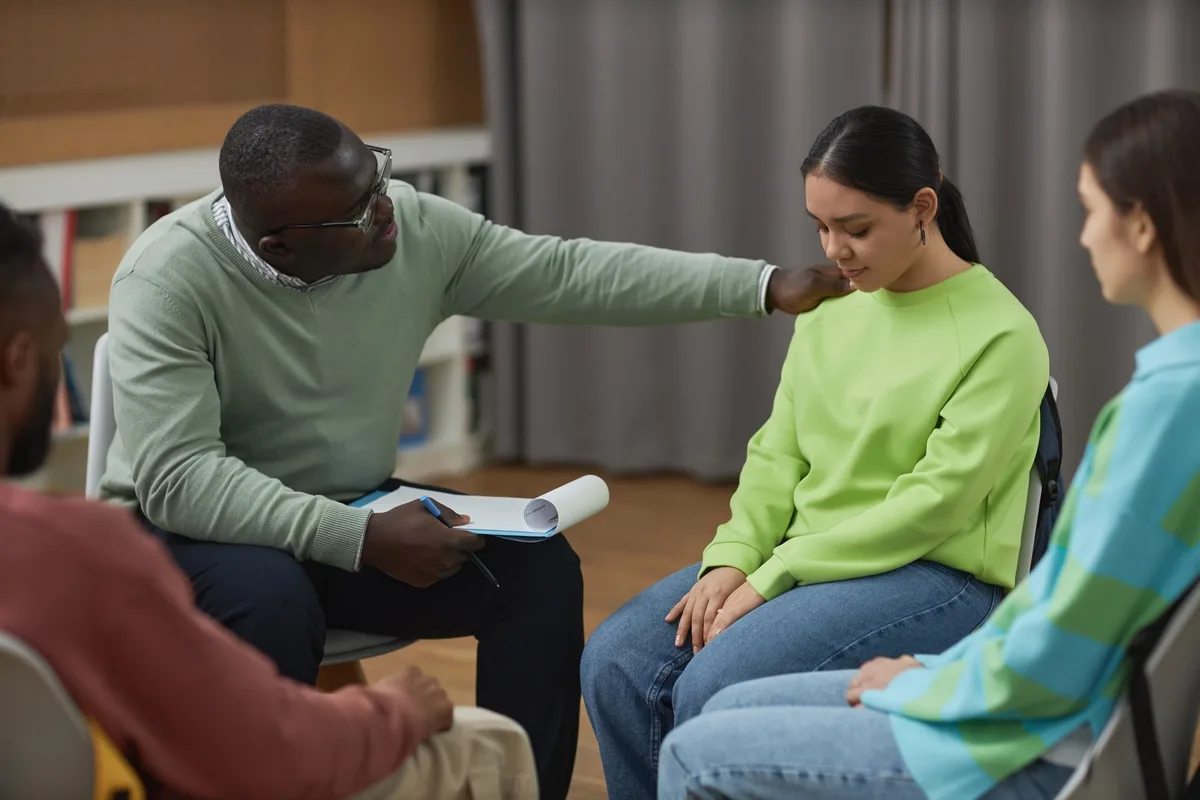24/7 Helpline:
(866) 899-221924/7 Helpline:
(866) 899-2219
Learn more about PTSD Treatment centers in Parmer County
Other Categories in Parmer County

Other Insurance Options

Molina Healthcare

State Farm

Carleon

Excellus

Kaiser Permanente

Providence

Medical Mutual of Ohio

Optima

Sutter

Coventry Health Care

WellPoint
Beacon

PHCS Network

Meritain

UnitedHealth Group

Highmark

UMR

EmblemHealth

Multiplan

Ambetter










